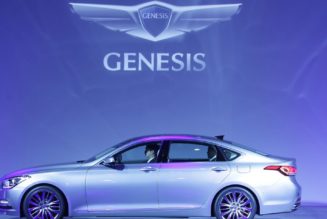
Toyota will finally introduce its first mass-market all-electric vehicles in the United States later this year, the world’s leading automaker announced Wednesday, though it offered no further details about vehicle type or pricing.
Toyota has previously said it’s developing an electric SUV on a new flexible platform that can power multiple EVs, following in the footsteps of Volkswagen, General Motors, and others. The two new EVs will be announced alongside an unspecified Toyota hybrid.
“We continue to be leaders in electrification that began with our pioneering introduction of the Prius nearly 25 years ago,” Bob Carter, Toyota North America’s executive vice president of sales, said in a statement. “Toyota’s new electrified product offerings will give customers multiple choices of powertrain that best suits their needs.”
Toyota helped pioneer and popularize hybrid vehicles, which lean on electric motors to cut down on emissions and increase fuel economy. But unlike most other major automakers, it has resisted investing in fully electric vehicles outside of China. It’s only ever sold one all-electric vehicle in the US: the Rav4 EV. It existed in a few different forms, though Toyota only ever made and sold a few thousand of them.
In its announcement, Toyota touted the success of its hybrid models, but it once again leaned on a flimsy argument as to why it’s resisted all-electric vehicles. The company says it did internal research that found total greenhouse gas emissions of all-electric and hybrid vehicles to be “roughly the same … when factoring in pollutants created by electricity production for the average US energy grid used to charge batteries.”
It’s a debatable idea taken at face value, but this argument crucially ignores that all-electric vehicles only get cleaner as renewable energy makes up more of the grid.
Still, it’s a popular line of thinking at Toyota; the company’s own billionaire CEO, Akio Toyoda, said in December that he believes electric vehicles are overhyped in part because of power plant emissions — a statement that must have been music to the oil industry’s ears since it’s been one of its favorite pieces of misinformation.









